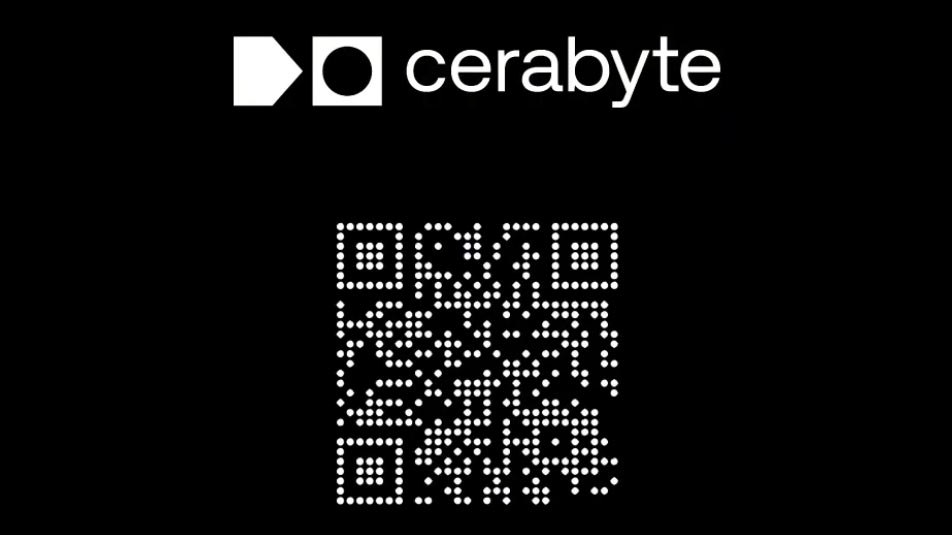Cerabyte Ceramic Storage Poised to Usher in 'Yottabyte Era'
Firm's roadmap contains 'CeraTapes' which boast TB/cm2 densities.

A technology startup has made startling claims for its innovative ceramic nanolayer-based storage. Cerabyte asserts it will disrupt the $500B storage market by reducing data center storage TCO by 75%. More specifically, its roadmaps sketch out server racks armed with CeraMemory cartridges (2025-30) storing between 10 PB and 100 PB, and its CeraTape (2030-35) with up to 1 EB capacity per tape. According to the startup, these new formats are poised to address density, performance, and access paradigms, as well as the cost and sustainability demands of data centers.
Cerabyte, a German storage startup, has published an abstract from its upcoming presentation at the 2023 Storage Developer Conference in Fremont, California (h/t Blocks and Files). Here, for the first time, it will detail how it will introduce CeraMemory with inorganic nanolayers, using 50-100 atoms thick ceramics to store information. Scaling ceramic data storage technology from 100nm to 3nm bit sizes will scale the corresponding data density from GB/cm2 to units measured in TB/cm2, reckons Cerabyte.
To record data to CeraMemory, Cerabyte says that a laser beam or particle beam structures data matrices similar to QR codes. Data reading can be done with equipment using high-resolution microscopic imaging techniques or electron beam microscopy. Initially, there will be no need for particle beams/electron microscopy, as those technologies will only be required later in the roadmaps at the highest densities.
So, capacities look impressive, but what about performance? In its abstract from the 'Ceramic Nano Memory – Data Storage for the Yottabyte Era' presentation, Cerabyte says its technology can read and write data at GB/s class speeds. These read/write technologies are "low power," according to the storage startup.
Another seemingly excellent inherent property of ceramic storage is the touted media durability and longevity. On its website, Cerabyte says that its media can last "5,000+ years" and that the data stored can ensure through "a wide temperature range of -273°C (-460°F) to 300°C (570°F)." We have used quotes here, as those are extraordinary figures. Additionally, it is boasted that CeraMemory is resistant to corrosive, acidic, radioactive environments and EMP disruption.
Blocks and Files has some background information about the two road-mapped storage formats mentioned above. The first Cerabyte solution, CeraMemory, will come as a cartridge that contains sheets with ceramic coatings. If you looked closely at the data stored, it would look like "quasi-punched cards in nano-scale." That might be another way of describing a tiny QR code.
Meanwhile, CeraTape (2030-35) gives away the storage medium type in its name. These data tapes will have a 5 µm thick substrate with a 10 nm thick ceramic coating. The arrival of these multi-layered tapes will usher in TB/cm2 scale densities.
Get Tom's Hardware's best news and in-depth reviews, straight to your inbox.
Cerabyte says it works closely with major players in related tech/manufacturing segments. Its presentation at the 2023 Storage Developer Conference, which takes place between September 18 and 21, looks set to be one to watch.

Mark Tyson is a news editor at Tom's Hardware. He enjoys covering the full breadth of PC tech; from business and semiconductor design to products approaching the edge of reason.
-
Kamen Rider Blade That's ALOT of hype, I'll wait for independent 3rd party testing to validate all the claims.Reply -
bolweval Reply
What else can you do but wait? :unsure:Kamen Rider Blade said:That's ALOT of hype, I'll wait for independent 3rd party testing to validate all the claims. -
Eximo I hope they at least have a laboratory prototype rather than just realizing you can take a piece of material and etch small details into it. Anyone can make that claim. And that note about not needing what are essentially bespoke scientific measurement equipment 'at first' is even more disturbing.Reply -
palladin9479 Ceramics can indeed do crazy stuff, but have a whole other set of issues. I have no doubt they can store information at those densities and similar temperature ranges. It's the practicality of reading and writing that is concerning. You would need some crazy advanced coating and laser equipment.Reply -
Co BIY I'm surprised it doesn't prevent COVID, cure cancer and help me lose weight too.Reply
Tape good for 5,000 years ? -
George³ I doubt there are that many atoms in the part of the device that would carry the record when created. Who knows, maybe instead of science, they record with usage of magic?Reply -
annymmo Was superexcited when reading the title but then read they're planning on using optical and even electron microscopes instead of having a new super-durable solid-state memory for ssds. Also no mention of rewritability. I guess this new ceramic material will make for a good medium for super-durable cds, dvds and Blu-ray Discs.Reply

